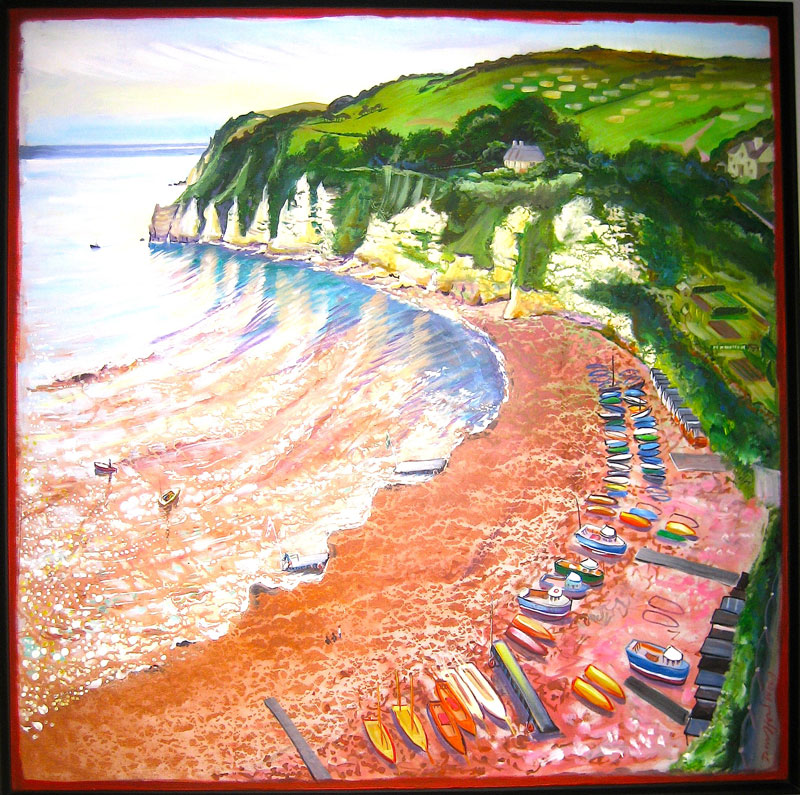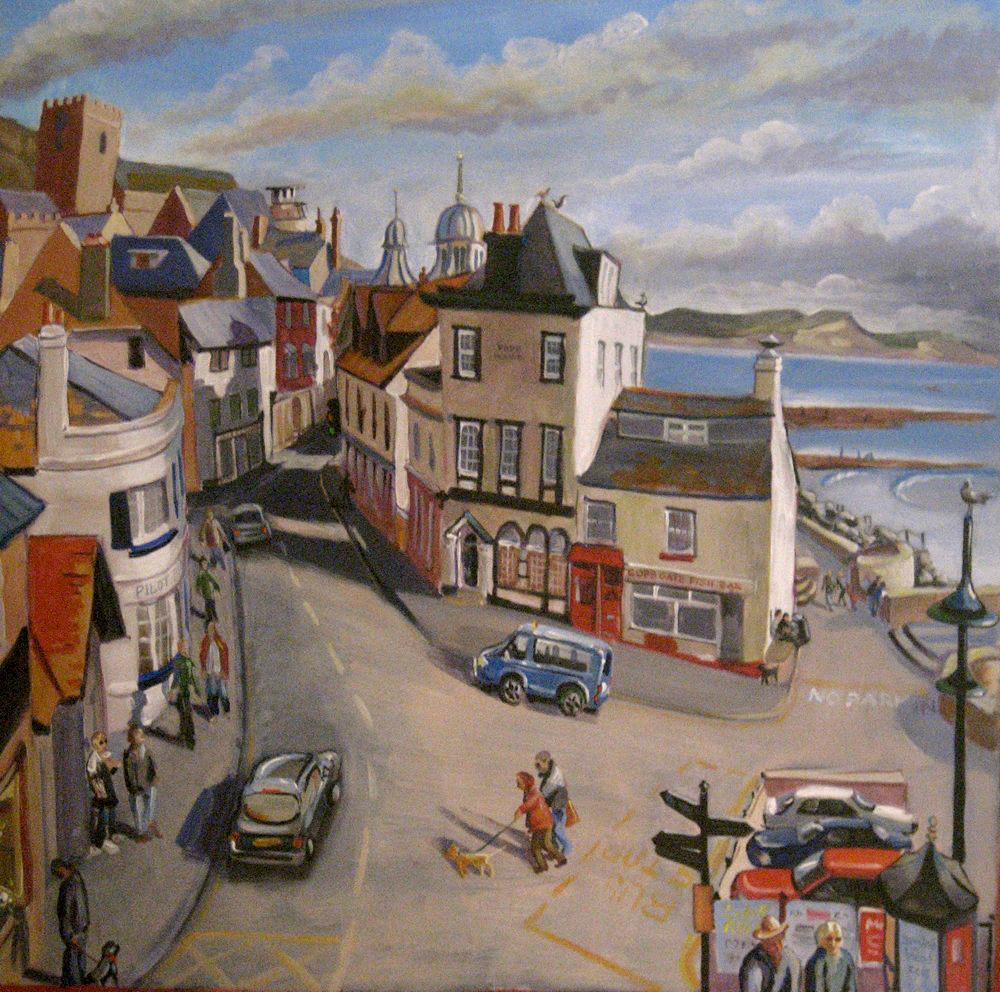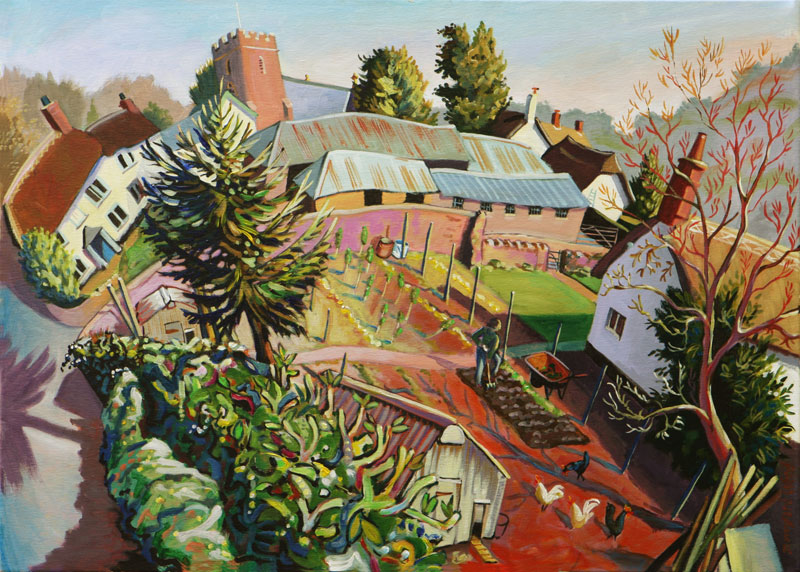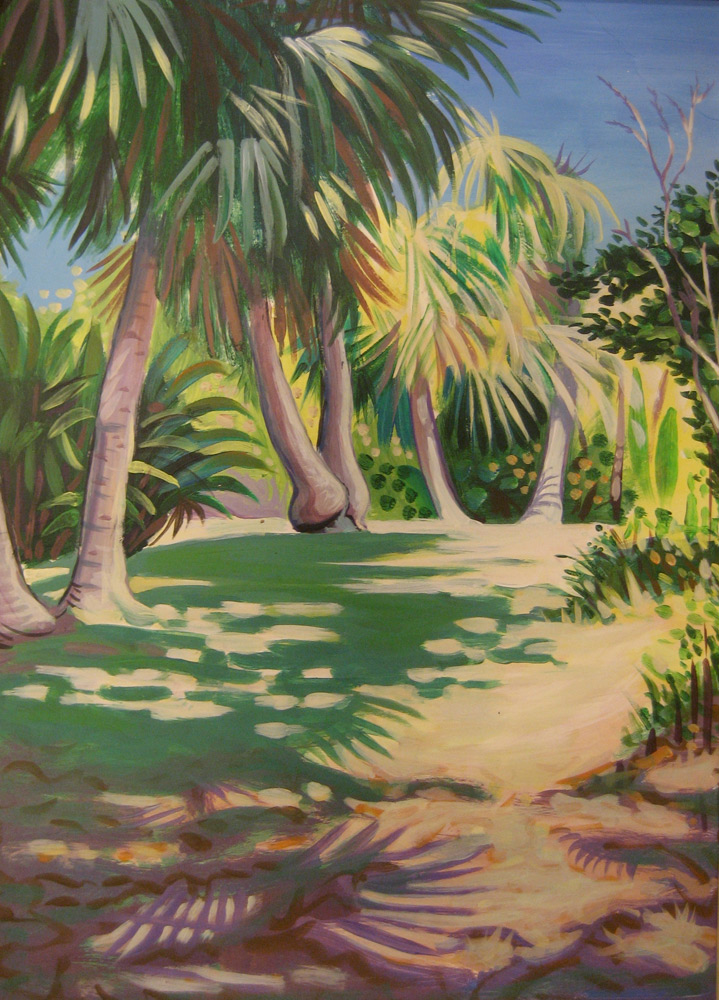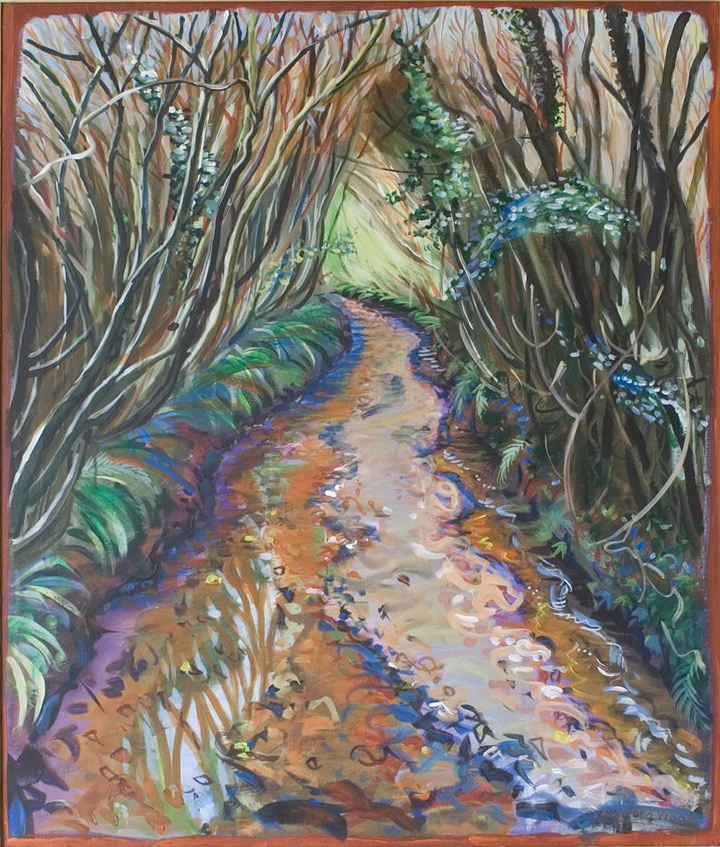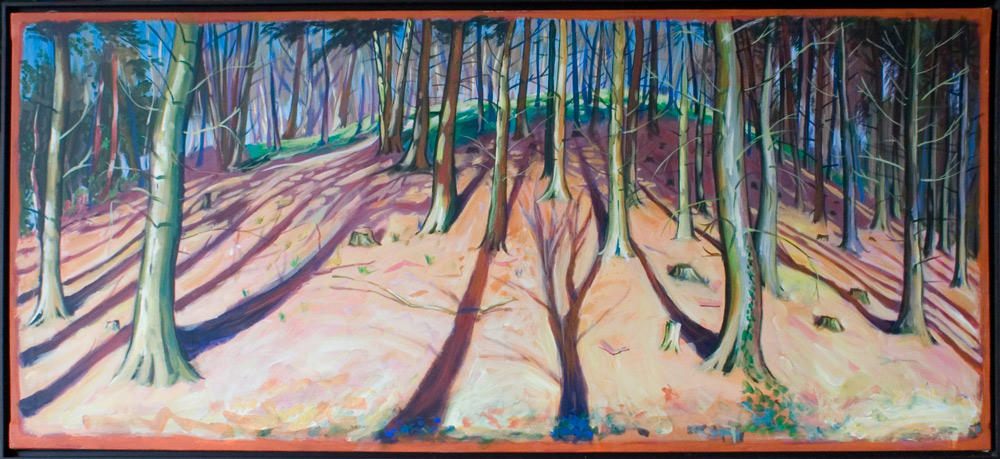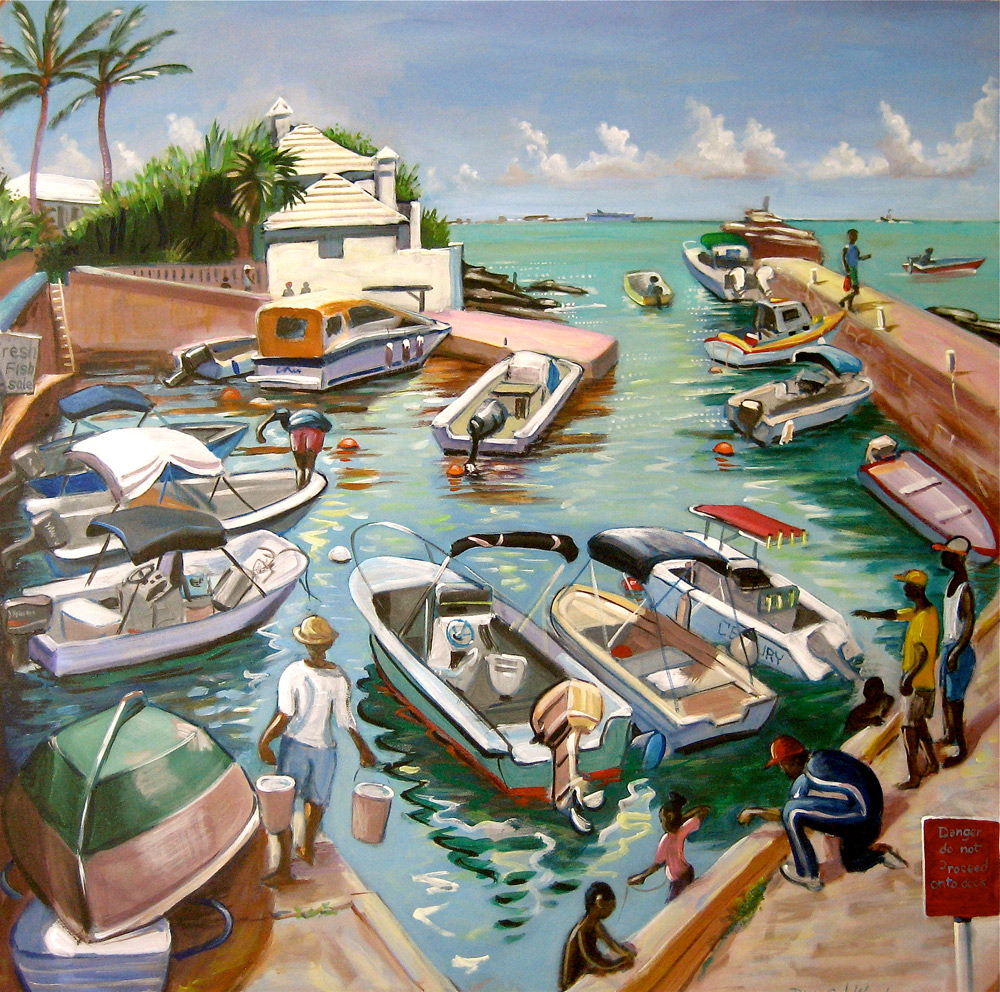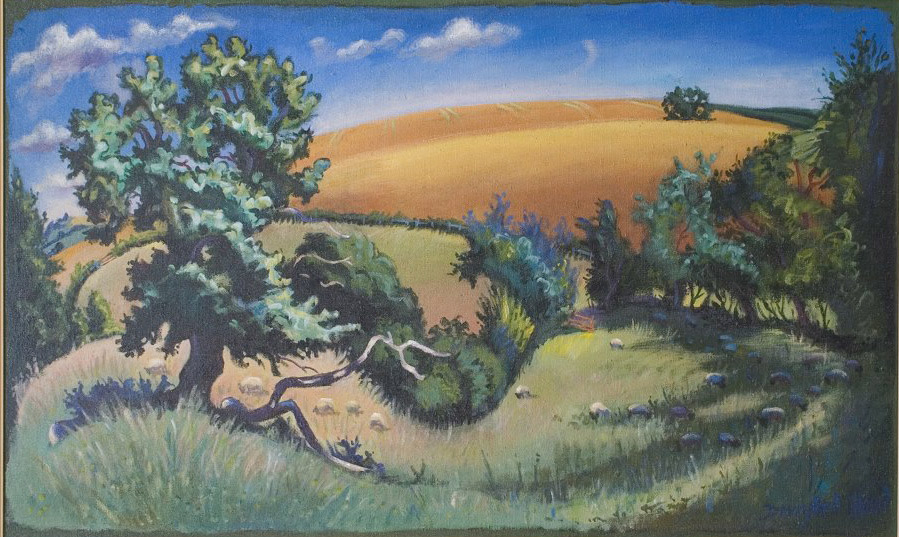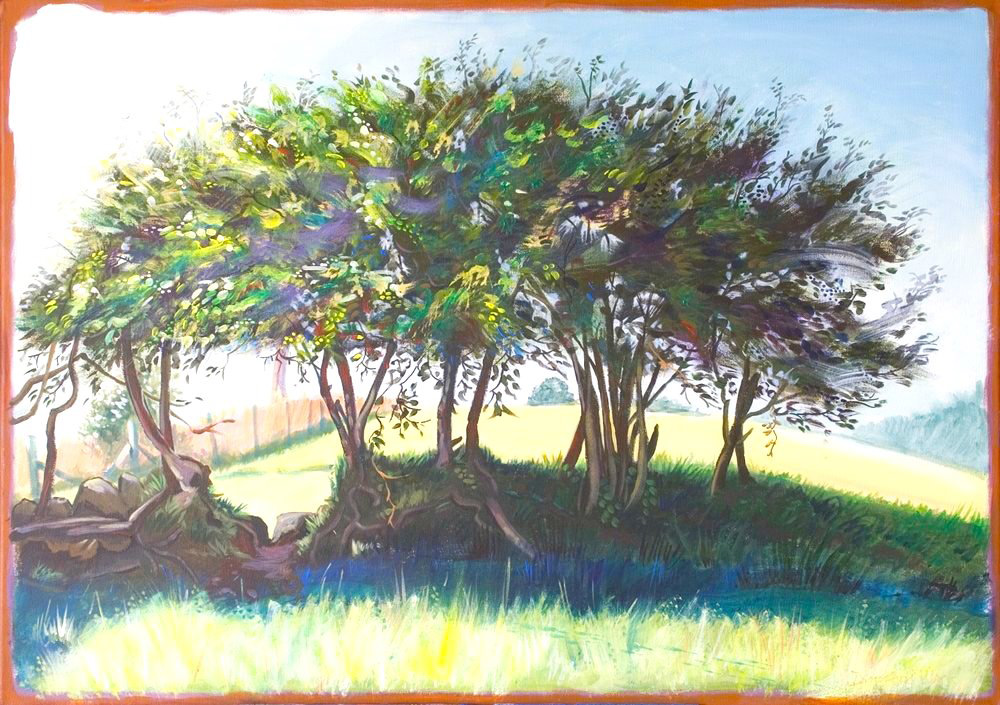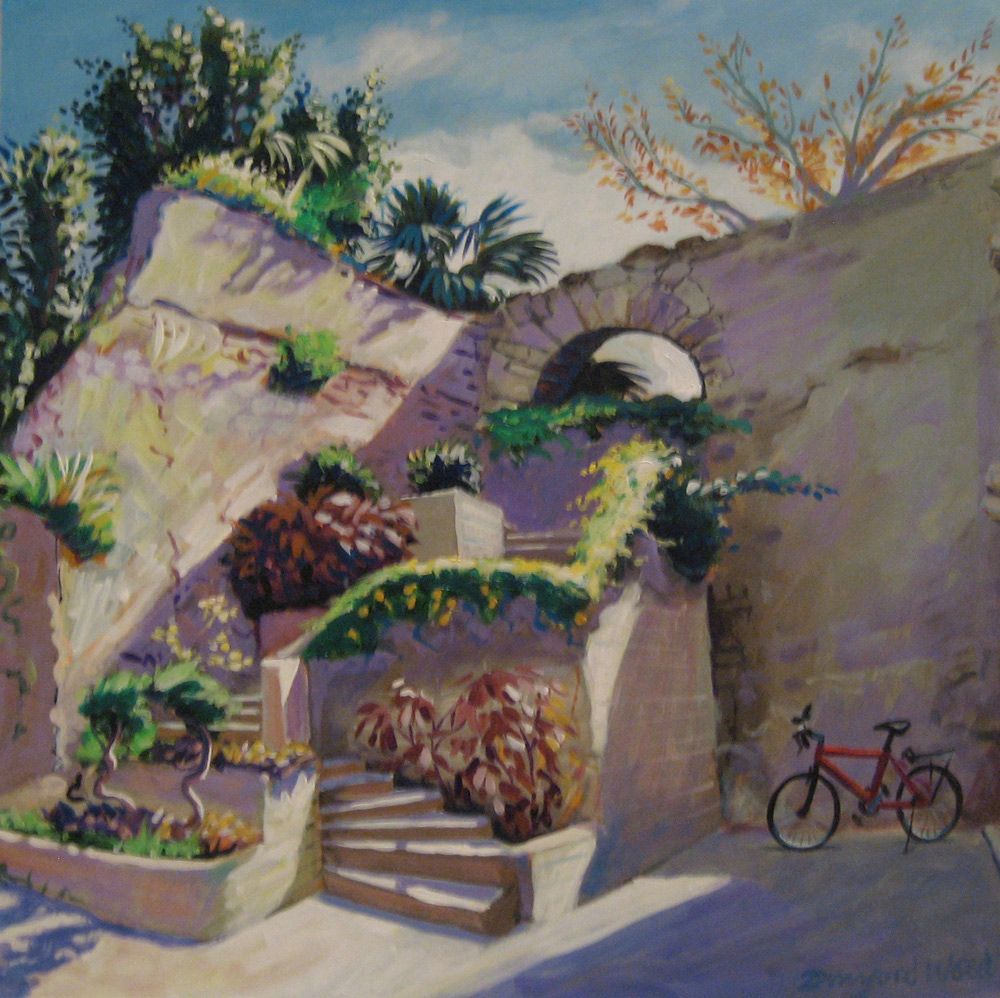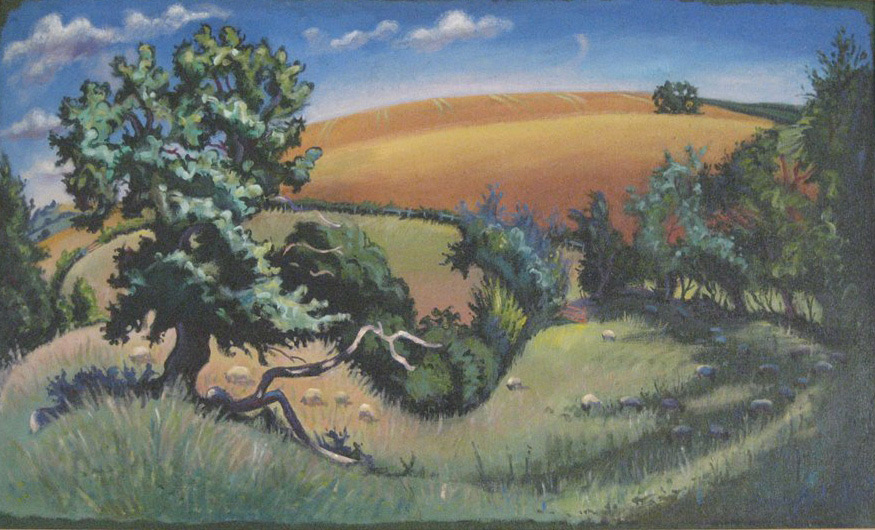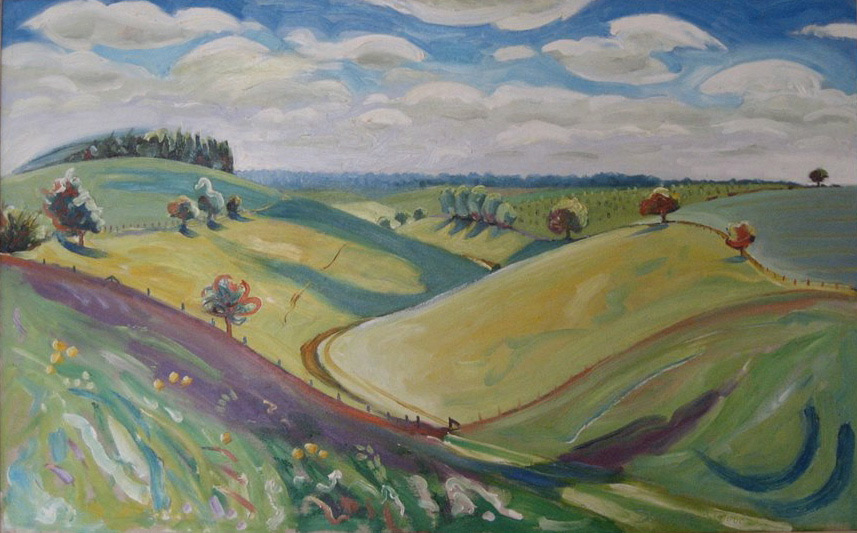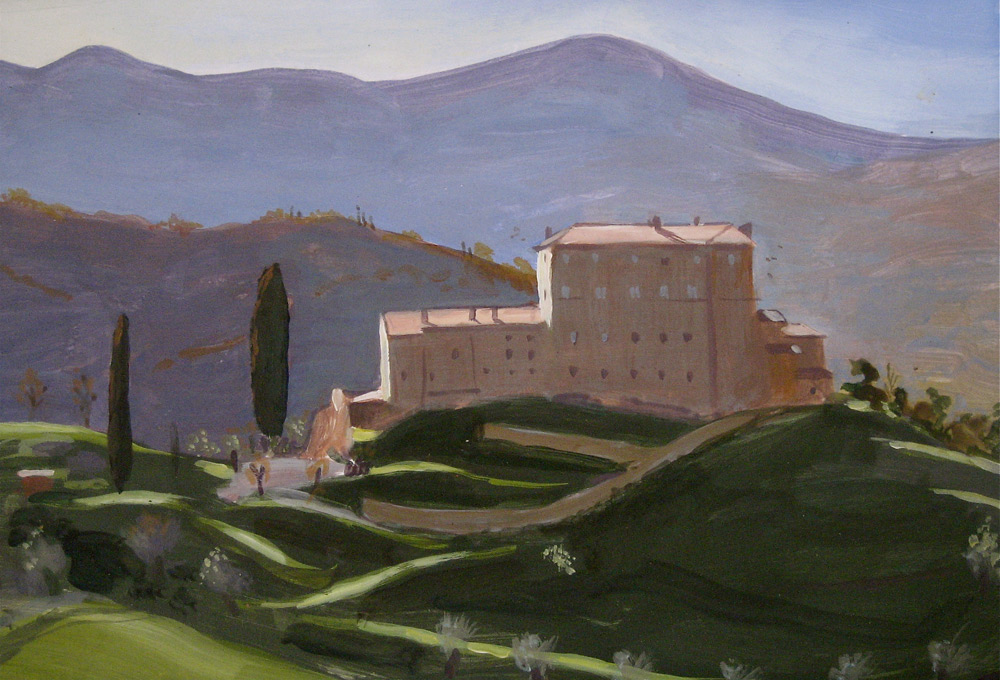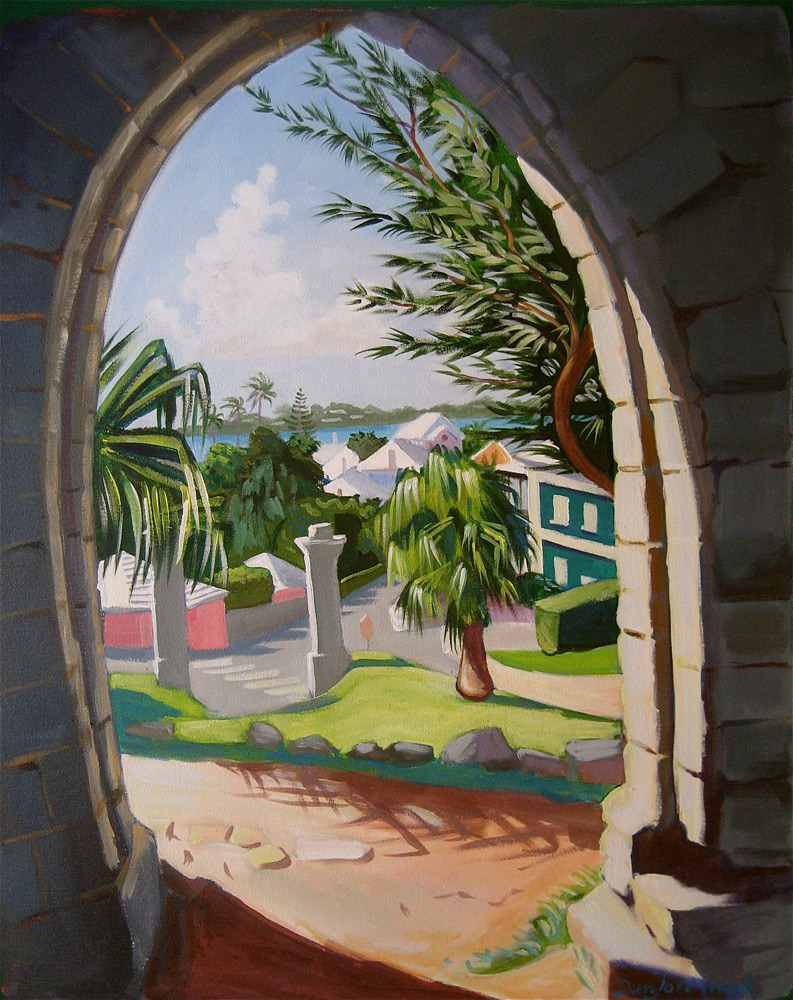Early days of Sunday School had impressed upon me,
May 13, 2021
In The Gardenby C. Austin Miles
I come to the garden aloneWhile the dew is still on the rosesAnd the voice I hear, falling on my earThe Son of God disclosesAnd He walks with me, and He talks with meAnd He tells me, I am His ownAnd the joy we share as we tarry thereNone other has ever knownHe speaks and the sound of His voiceIs so sweet the birds hush their singingAnd the melody that He gave to meWithin my heart is ringingAnd He walks with me, and He talks with meAnd He tells me, I am His ownAnd the joy we share as we tarry thereNone other has ever knownI'd stay in the garden with HimThough the night around me be fallingBut He bids me go through the voice of woeHis voice to me is callingAnd He walks with me, and He talks with meAnd He tells me, I am His ownAnd the joy we share as we tarry thereNone other has ever knownAnd the joy we share as we tarry thereNone other has ever known
| In the Garden | |
|---|---|
| by C. Austin Miles | |
| Genre | Hymn |
| Written | 1913 |
| Based on | John 20:14 |
| Meter | 8.9.10.7 with refrain |
"In the Garden" (sometimes rendered by its first line "I Come to the Garden Alone" is a gospel song written by American songwriter C. Austin Miles (1868–1946), a former pharmacist who served as editor and manager at Hall-Mack publishers for 37 years. According to Miles' great-granddaughter, the song was written "in a cold, dreary and leaky basement in Pitman, New Jersey that didn't even have a window in it let alone a view of a garden."[1] The song was first published in 1912 and popularized during the Billy Sunday evangelistic campaigns of the early twentieth century by two members of his staff, Homer Rodeheaver and Virginia Asher.
C. Austin Miles
C. Austin Miles | |
|---|---|
 | |
| Born | January 7, 1868 Lakehurst, New Jersey, U.S. |
| Died | March 10, 1946 (aged 78) Philadelphia, Pennsylvania, U.S. |
| Nationality | American |
| Other names | A. A. Payn, C. A. M. |
Notable work | "In the Garden" |
Charles Austin Miles (January 7, 1868 – March 10, 1946) was a prolific American writer of gospel songs, who is best known for his 1912 hymn "In the Garden".
He studied at the Philadelphia College of Pharmacy and the University of Pennsylvania. In 1892, he ceased to practice as a pharmacist. His first gospel song, "List! ’Tis Jesus’ Voice", was published by the Hall-Mack Company. He worked as editor and manager at Hall-Mack for 37 years. A resident of Pitman, New Jersey, Miles died on March 10, 1946, at Hahnemann Hospital in Philadelphia.[1] He is buried in Hillcrest Memorial Park, Sewell, NJ.
He said, "It is as a writer of gospel songs I am proud to be known, for in that way I may be of the most use to my Master, whom I serve willingly although not as efficiently as is my desire". He wrote at least 398 songs, and the music to at least 8 more.
His best-known song may be "In the Garden" (1912); sometimes known by its first line, "I Come to the Garden Alone". It has been included in 210 hymnals,[5] and recorded numerous times.
Songs
- "Dwelling in Beulah Land" (a.k.a. "God Bless Fiji") (1911)
- "List! ’Tis Jesus’ Voice" (a.k.a. "He's Watching and Waiting") (1894)
- "In the Garden" (a.k.a. "I Come to the Garden Alone") (1912)
- "Sweeter as the Years Roll By" (1914)
I know not why God's wondrous graceTo me He hath made knownNor why, unworthy, Christ in loveRedeemed me for His ownBut I know Whom I have believedAnd am persuaded that He is ableTo keep that which I've committedUnto Him against that dayI know not how the Spirit movesConvincing us of sinRevealing Jesus through the WordCreating faith in HimBut I know Whom I have believedAnd am persuaded that He is ableTo keep that which I've committedUnto Him against that dayI know not what of good or illMay be reserved for meOf weary ways or golden daysBefore His face I seeBut I know Whom I have believedAnd am persuaded that He is ableTo keep that which I've committedUnto Him against that dayI know not when my Lord may comeAt night or noonday fairNor if I walk the vale with HimOr meet Him in the airBut I know Whom I have believedAnd am persuaded that He is ableTo keep that which I've committedUnto Him against that dayAlternate Verse:I know not how this saving faithTo me He did impartNor how believing in His WordWrought peace within my heart
James McGranahan
James McGranahan was a nineteenth-century American musician and composer, most known for his various hymns. He was born 4 July 1840, in West Fallowfield or Adamsville, Pennsylvania, and died 9 July 1907 at his home in Kinsman, Ohio.
He composed over 25 hymns. For example, in one work he is listed as the composer of three notable songs: "He Will Hide Me" by Mary Elizabeth Servoss, "Revive Thy Work, O Lord" by Albert Midlane, and "Come" by a "Mrs. James Gibson Johnson"; and he composed the music for at least 39 of the 79 hymns in a work co-authored with Ira D. Sankey. McGranahan composed most of the tunes for the lyrics of Major Daniel Webster Whittle, including EL NATHAN, the tune associated with Whittle's "I Know Whom I Have Believèd" (written 1883).
The music of his hymn "My Redeemer," written for lyrics by P. P. Bliss, is used as the accompaniment for the Latter-day Saints hymn "O My Father."
In Hawaii, McGranahan is noted for writing the music to the hymn "I Left It All With Jesus." The melody was given new lyrics, written sometime prior to 1886 by Lorenzo Lyons, an early missionary to Hawaii, and given a new title, "Hawai'i Aloha." Lyons was known as "Makua Laiana" or simply "Laiana." By the end of the 20th century "Hawai'i Aloha" had become one of Hawaii's best known and best loved songs. It is often sung at the close of public political, spiritual, educational and sporting events.
1. “God is not unjust; he will not forget your work and the love you have shown him as you have helped his people and continue to help them.” Hebrews 6:102. “Whoever brings blessing will be enriched, and one who waters will himself be watered.” Proverbs 11:253. “The greatest among you will be your servant.” Matthew 23:114. “Give, and it will be given to you. A good measure, pressed down, shaken together and running over, will be poured into your lap. For with the measure you use, it will be measured to you.” Luke 6:385. “For even the Son of Man did not come to be served, but to serve, and to give his life as a ransom for many.” Mark 10:456. “Each one should use whatever gift he has received to serve others, faithfully administering God’s grace in its various forms.” 1 Peter 4:107. “Love must be sincere. Hate what is evil; cling to what is good. Be devoted to one another in brotherly love. Honor one another above yourselves. Never be lacking in zeal, but keep your spiritual fervor, serving the Lord. Be joyful in hope, patient in affliction, faithful in prayer. Share with God’s people who are in need. Practice hospitality.” Romans 12:9-138. “So then, as we have opportunity, let us do good to everyone, and especially to those who are of the household of faith.” Galatians 6:109. “But love your enemies, and do good, and lend, expecting nothing in return, and your reward will be great, and you will be sons of the Most High, for he is kind to the ungrateful and the evil.” Luke 6:3510. “I have shown you in every way, by laboring like this, that you must support the weak. And remember the words of the Lord Jesus, that He said, ‘It is more blessed to give than to receive.” Acts 20:3511. “For we are his workmanship, created in Christ Jesus for good works, which God prepared beforehand, that we should walk in them.” Ephesians 2:1012. “Work willingly at whatever you do, as though you were working for the Lord rather than for people. Remember that the Lord will give you an inheritance as your reward, and that the Master you are serving is Christ.” Colossians 3:23-2413. “And the King will say, ‘I tell you the truth, when you did it to one of the least of these my brothers and sisters, you were doing it to me!’ Matthew 25:4014. “Feed the hungry, and help those in trouble. Then your light will shine out from the darkness, and the darkness around you will be as bright as noon.” Isaiah 58:1015. “Each of you should give what you have decided in your heart to give, not reluctantly or under compulsion, for God loves a cheerful giver. And God is able to bless you abundantly, so that in all things at all times, having all that you need, you will abound in every good work. As it is written: ‘They have freely scattered their gifts to the poor; their righteousness endures forever.” 2 Corinthians 9:7-916. “You, my brothers and sisters, were called to be free. But do not use your freedom to indulge the flesh; rather, serve one another humbly in love. For the entire law is fulfilled in keeping this one command: “Love your neighbor as yourself.” Galatians 5:13-1417. “This is a trustworthy saying. And I want you to stress these things, so that those who have trusted in God may be careful to devote themselves to doing what is good. These things are excellent and profitable for everyone.” Titus 3:818. “Make sure that nobody pays back wrong for wrong, but always strive to do what is good for each other and for everyone else.” 1 Thessalonians 5:1519. “Little children, let us not love with word or with tongue, but in deed and truth.” 1 John 3:1820. “Now after this the Lord appointed seventy others, and sent them in pairs ahead of Him to every city and place where He Himself was going to come. And He was saying to them, “The harvest is plentiful, but the laborers are few; therefore beseech the Lord of the harvest to send out laborers into His harvest.” Luke 10:1-221. “Then I heard the voice of the Lord, saying, “Whom shall I send, and who will go for Us?” Then I said, “Here am I. Send me!” Isaiah 6:822. “When he had washed their feet and put on his outer garments and resumed his place, he said to them, “Do you understand what I have done to you? You call me Teacher and Lord, and you are right, for so I am. If I then, your Lord and Teacher, have washed your feet, you also ought to wash one another’s feet.” John 13:12-1323. “Even as the Son of Man came not to be served but to serve, and to give his life as a ransom for many.” Matthew 20:2824. “So if there is any encouragement in Christ, any comfort from love, any participation in the Spirit, any affection and sympathy, complete my joy by being of the same mind, having the same love, being in full accord and of one mind. Do nothing from rivalry or conceit, but in humility count others more significant than yourselves. Let each of you look not only to his own interests, but also to the interests of others. Have this mind among yourselves, which is yours in Christ Jesus, …” Philippians 2:1-1125. “And he sat down and called the twelve. And he said to them, “If anyone would be first, he must be last of all and servant of all.” Mark 9:35





